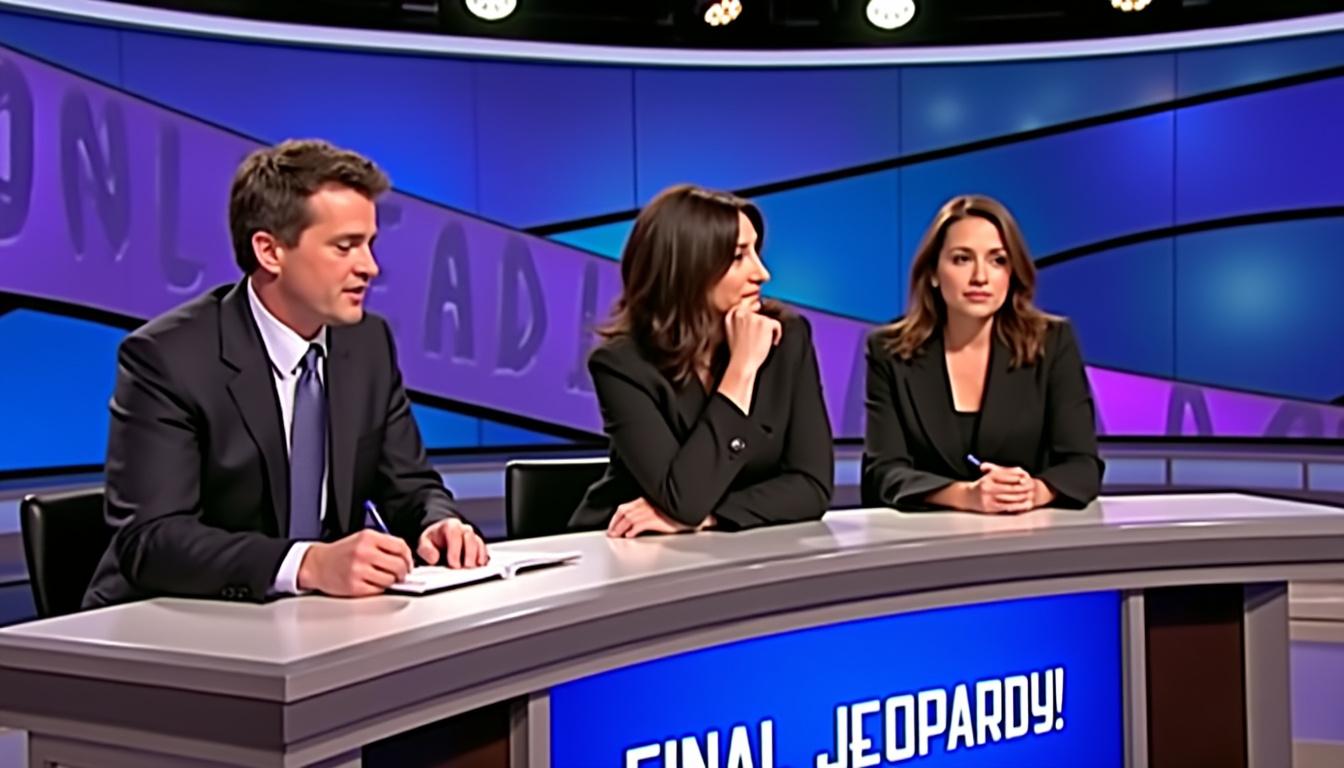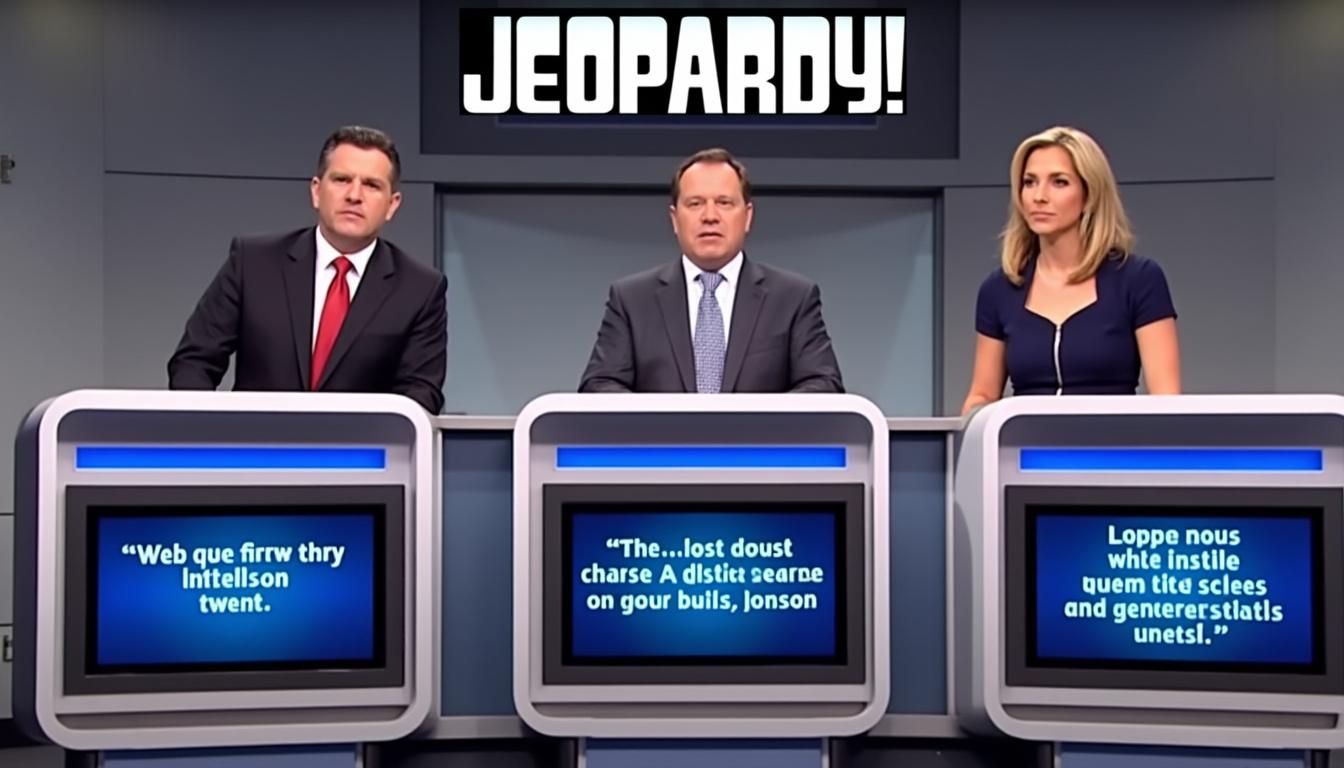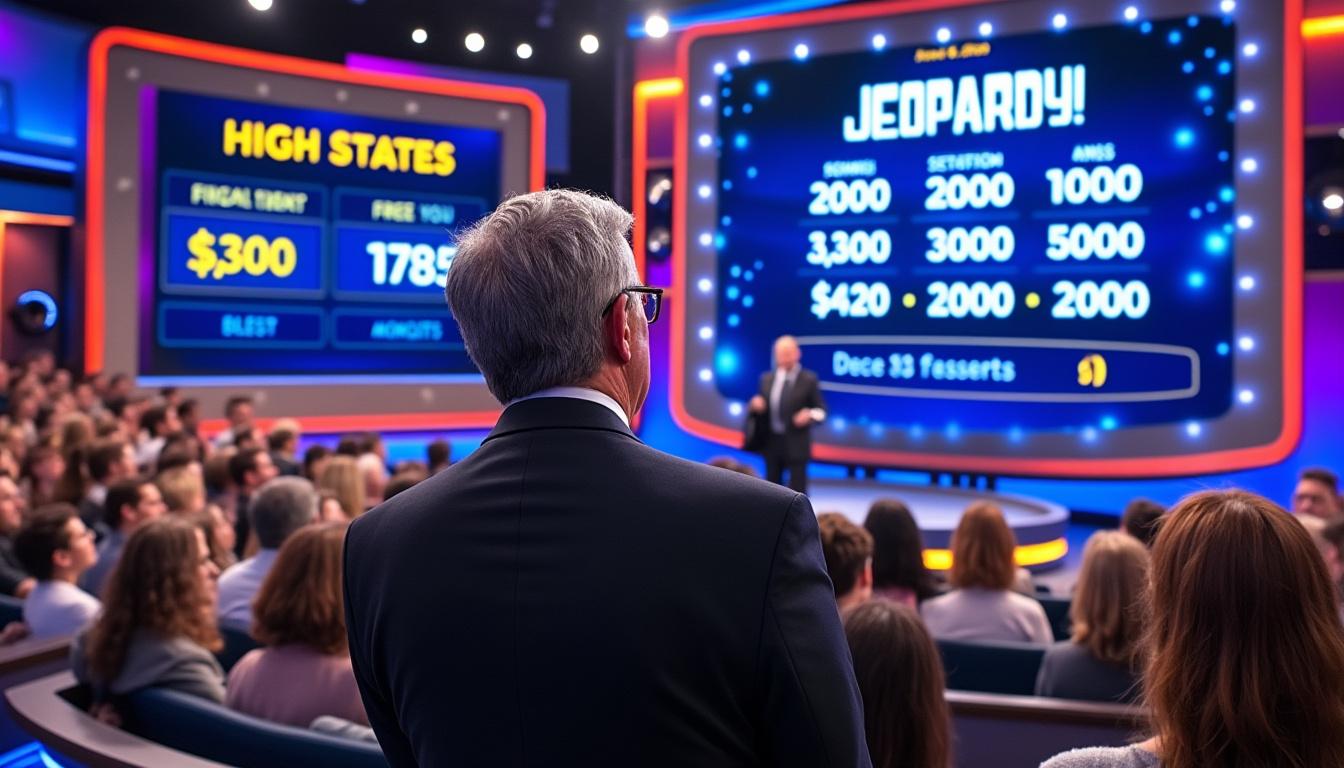The hit quiz show, Jeopardy!, is always a hotbed for excitement, especially during critical rounds like the Final Jeopardy. On June 6, 2025, audiences were again on the edge of their seats as they awaited the showdown among top contenders in a high-stakes environment. The showdown featured returning champion Nikhil Joshi, fresh off his victory the day before, facing formidable challengers, software engineer Elizabeth Hawkins and graduate student Brian O’Heron. The stakes were high, and the tension palpable, leading fans to ponder the nature of the questions, answers, and the strategies behind the bets placed by each contestant.
Final Jeopardy Question on June 6, 2025: Analyzing the Clue
The Final Jeopardy question for this episode fell under the category of “Name That -Ism,” and the specific clue posed was crafted to challenge even the most astute strategies:
This word first appears in English in a letter explaining that “Candide” is meant to ridicule the philosopher Leibniz.
To those familiar with literary philosophy, the mention of “Candide” and Leibniz should immediately spark connections to the word “optimism.” Voltaire’s satire in Candide plays a critical role in the mockery directed towards Leibniz’s cheerful rationalism, which asserted that everything happens for the best in the best of all possible worlds. Thus, the correct response to this clue is, in fact, “What is optimism?”
The clarity and directiveness of the cue serve to invite deeper discussion not only about philosophy but also about how literature reflects societal values and critiques. By determining the connections between historical philosophical texts and the context of their time, it emphasizes the balance of skepticism and hopefulness in human experience.

The Significance of Philosophy in Jeopardy!
Diving deeper into the thematic implications of the Final Jeopardy question, philosophy frequently emerges as a compelling subject on Jeopardy!. It melds the realms of intellect with cultural discourse, allowing contestants and viewers alike to engage in a dialogue about significant works of literature and thought. Understanding philosophical contexts enriches the viewing experience and prompts audiences to appreciate the historical depth behind seemingly simple queries.
Consider this:
- Understanding key philosophical movements is essential for grasping the overarching principles of works like Candide.
- Literary critiques often mirror societal issues of their time, revealing how long-standing ideologies continue to influence contemporary views.
- Even in the competitive sphere of Jeopardy!, questions related to philosophy challenge contestants to think critically and make connections beyond the immediate answers.
Moreover, Jeopardy! showcases how intellectual rigor, paired with entertainment, creates a forum for discussing profound themes that resonate far beyond a simple game show. This interplay enhances viewers’ appreciation for the show’s legacy as a purveyor of knowledge.
Breaking Down the Bets and Strategy of Nikhil Joshi
As returning champion with significant winnings from prior games, Nikhil Joshi faced a unique challenge during this Final Jeopardy. His previous win, characterized by a strategy that emphasized caution—evident when he made minimal wagers during a Triple Stumper—now hung over his decision-making process. With an impressive total of $16,200 heading into the Final Jeopardy, he had to calculate risk versus reward cautiously.
Understanding the dynamics of wagering in Jeopardy! can be complex. The contestants must consider their current scores, the scores of their opponents, and the likelihood of answering correctly:
| Contestant | Current Score | Wagered Amount | Final Score |
|---|---|---|---|
| Nikhil Joshi | $16,200 | $1,401 | $14,799 |
| Brian O’Heron | $8,800 | $7,401 | $1,399 |
| Elizabeth Hawkins | $1,200 | $0 | $1,200 |
Rather than risking a larger bet, Nikhil’s decision to wager only $1,401 stemmed from his goal to maintain a lead over his competitors. This conservative approach allowed him to secure his win despite answering incorrectly. In stark contrast, Brian O’Haron attempted to close the gap but ultimately found himself unable to recover from a risky wager that left him with a mere $1,399 post-answer. Meanwhile, Elizabeth’s strategic decision not to risk any of her funds became a pivotal factor in the overall rankings, even though she managed to answer the Final Jeopardy question correctly.
Evaluating Contestant Strategies in Competitive Settings
The strategic components of Jeopardy! extend far beyond mere trivia knowledge; they encompass psychological tactics, risk management, and adapting to live competitive pressure. Contestants must remain cognizant of the following:
- Maintain focus under pressure—an essential trait in high-stakes environments.
- Calculate risks based on opponents’ scores and performance—understanding the dynamics of competition aids decision-making.
- Develop a flexible strategy that adapts to the event flow, particularly with unexpected clues or answer timing.
This evaluation of contestant strategies demonstrates the multi-faceted approach to both playing and winning Jeopardy! Observing these elements elevates the viewing experience and entices fans to engage with the content on a deeper intellectual level.
The Outcomes of June 6, 2025: Who Emerged Victorious?
After Nikhil emerged victorious despite his inconclusive performance on the final question, his focus and strategy remained the talk of the episode. Below is a breakdown of the final standings:
- Nikhil Joshi: Final Score: $14,799, Total Winnings: $20,199
- Brian O’Haron: Final Score: $1,399
- Elizabeth Hawkins: Final Score: $1,200
The resilience shown by Nikhil Joshi, particularly in his ability to navigate the complexities of wager systems, puts him in a unique position among Jeopardy! champions. His capacity to maintain composure under pressure speaks volumes about his dedication and skill level.
While Brian attempted an aggressive strategy that, although bold, backfired in the end, Elizabeth’s decision to play it safe showed that there are multiple pathways to score success on Jeopardy!. Despite answering the Final Jeopardy question correctly, her lack of risk-taking ultimately limited her final placement.

The Cultural Impact and Legacy of Jeopardy!
Jeopardy! has evolved into more than just a television quiz show; it has become a cultural phenomenon, entwined with societal interactions and intellectual engagement. The show’s wide appeal lies in its combination of competitive spirit, educational value, and entertainment. The ability of contestants to engage with complex subjects gives viewers a sense of shared experience, further solidifying the show’s legacy.
In the context of the June 6, 2025, episode, the conversation surrounding the philosophy encapsulated in the Final Jeopardy question invites broader reflections about contemporary societal values:
- The relevance of philosophical discourse in modern culture highlights how classical literature can resonate with current events.
- The increasing appreciation for intellectual competitions like Jeopardy! underscores a societal yearning for knowledge in a context filled with entertainment.
- Jeopardy!’s ability to merge rigor with fun allows audiences of all ages to participate in critical thinking and discussion.
As Jeopardy! continues to air on networks like NBC and streaming platforms like Hulu and Peacock, its cultural and intellectual contributions will doubtlessly influence new generations of contestants and viewers alike.
Reflections on Jeopardy!’s Future
The evolution of Jeopardy! has consistently echoed changes in media and cultural consumption. Media outlets like Sony Pictures and Hasbro have invested in the franchise, leading to an expansive reach across platforms, including Netflix and Disney. The introduction of various formats and tournaments showcases how Jeopardy! continues to innovate, keeping the core of the game while adapting to contemporary viewing trends.
As the show progresses, audiences can anticipate further engagement with clues that challenge societal norms and raise awareness of pressing global issues. Underpinned by technological advancements in broadcasting and viewer interaction, the future of Jeopardy! promises to remain dynamic and evolving.
Whether through the lens of philosophy, popular culture, or game theory, Jeopardy! serves as a reminder of the intersection between knowledge, entertainment, and societal reflection—a testament to its enduring legacy over decades and its promise for the future.


